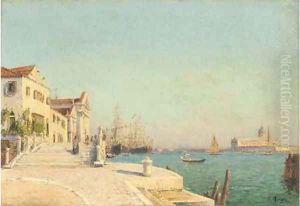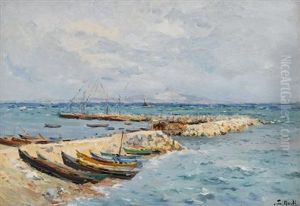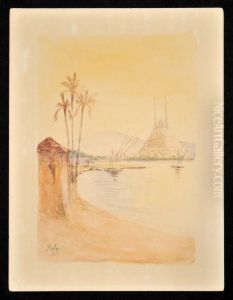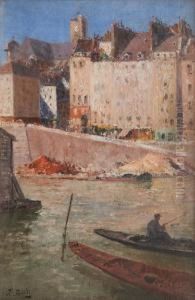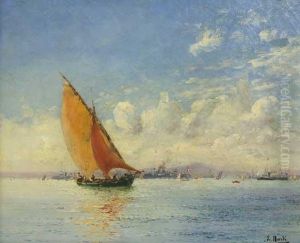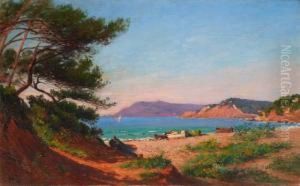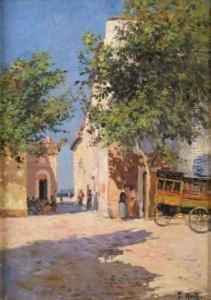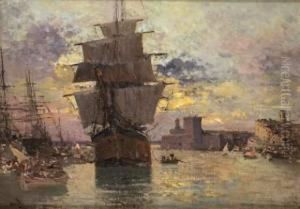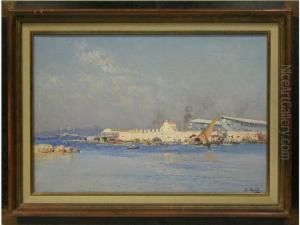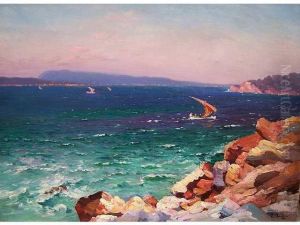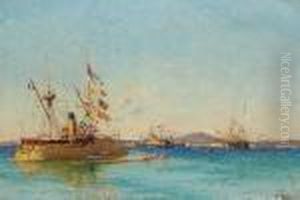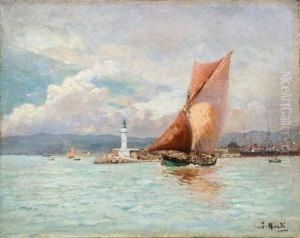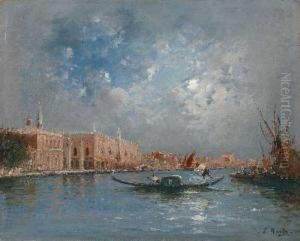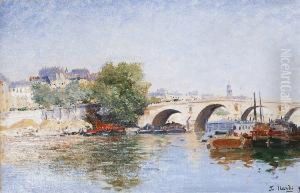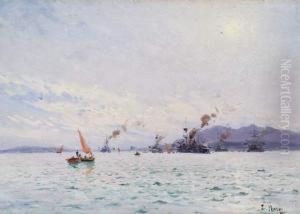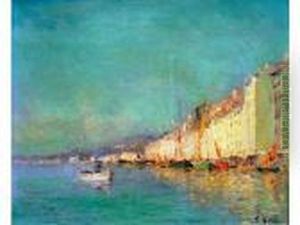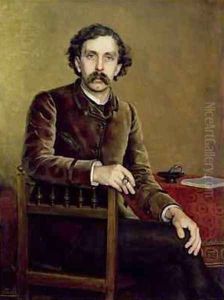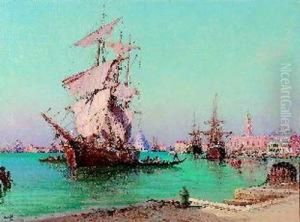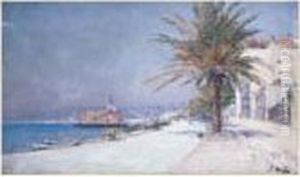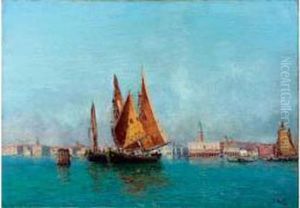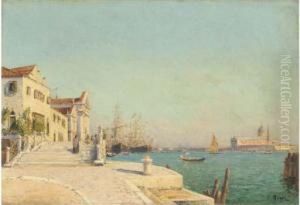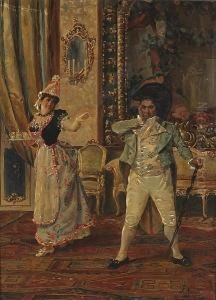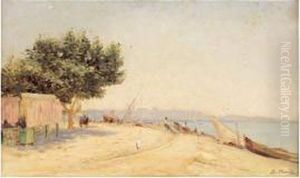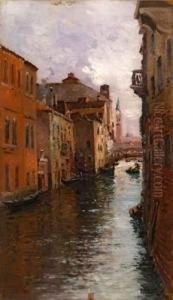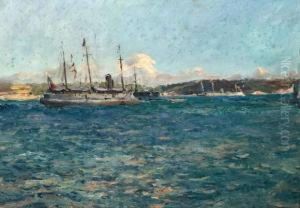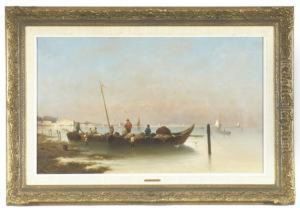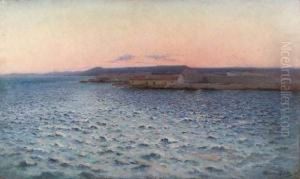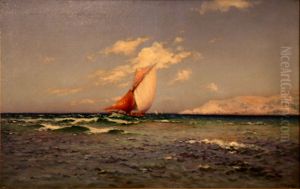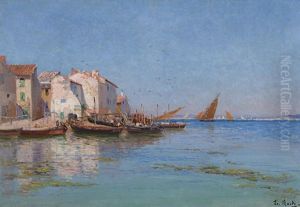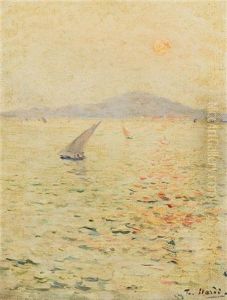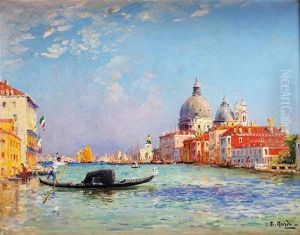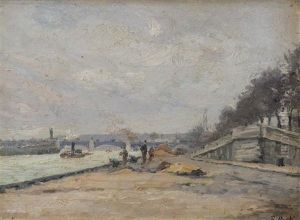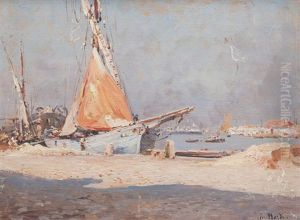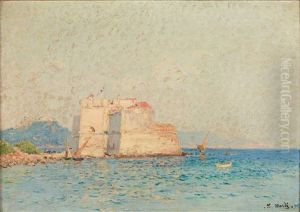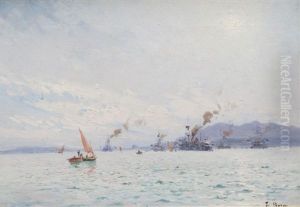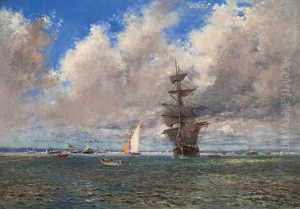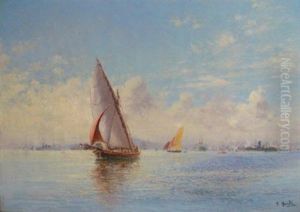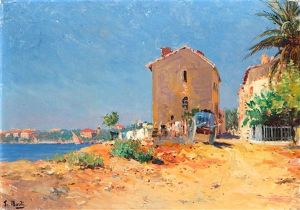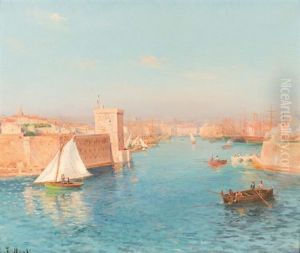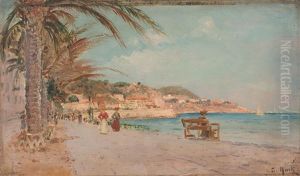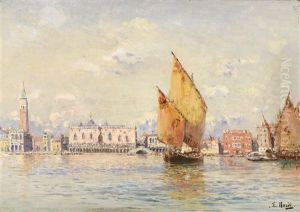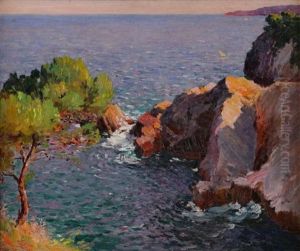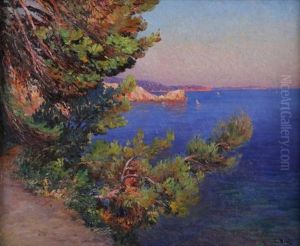Francois Nardi Paintings
François Nardi was a notable French painter born on December 10, 1861, in Toulon, France. He is best known for his marine landscapes and depictions of the Mediterranean coast. Nardi's passion for the sea was evident in his work, as he often focused on the play of light and color on the water's surface, capturing the vibrancy and dynamism of coastal scenes.
Nardi studied under Jean-Léon Gérôme at the École des Beaux-Arts in Paris, which was the leading art academy in France at the time. Influenced by the academic training, his early works encompassed a traditional approach, focusing on historical and mythological subjects. However, his style evolved as he became more interested in Impressionism and the possibilities it offered for capturing light and atmosphere.
Throughout his career, Nardi exhibited at the Paris Salon, which was the official art exhibition of the Académie des Beaux-Arts in Paris. His works gained recognition, and he became a member of the Société des Artistes Français, receiving several awards, including a bronze medal at the 1900 Exposition Universelle in Paris.
Nardi was also influenced by his travels around the Mediterranean, which allowed him to study the effects of natural light on the sea and the landscape. He settled in the south of France, where the quality of light and the natural beauty of the region continued to inspire his work. The artist's renderings of the sea and coastal towns are notable for their vivid color palette and the sense of movement he was able to convey.
François Nardi continued to paint until his death on May 17, 1936, in Brunoy, France. His legacy includes a body of work that captures the unique light and atmosphere of the Mediterranean, making him an important figure in the post-Impressionist movement in French art. His paintings are still appreciated today for their beauty and his ability to depict the essence of the Mediterranean landscape.
